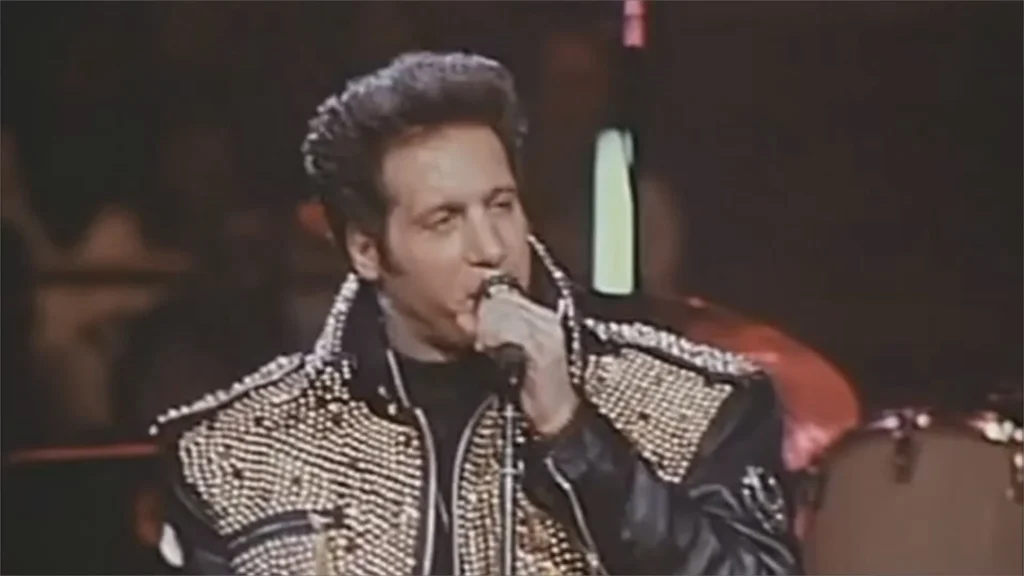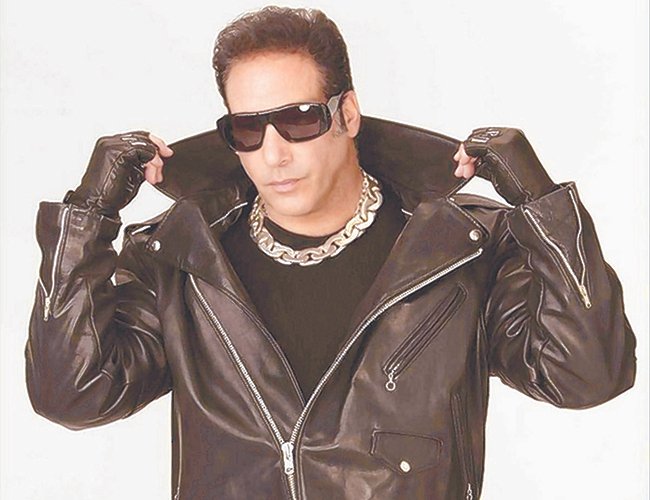Early Life and Career
Andrew Dice Clay, born Andrew Clay Silverstein on September 29, 1957, is a prominent American stand-up comedian and actor. His rise to fame began in the late 1980s when he adopted a brash and deliberately offensive persona known as ‘the Diceman.’ This character quickly garnered both attention and notoriety, marking a significant shift in the landscape of stand-up comedy.

Breakthrough Moments
Clay’s breakthrough came in 1988 when he performed at an all-male Big Brother Association dinner. This event saw Hollywood elites dressed in tuxedos, while Clay stood out in a black leather jacket emblazoned with a flag that read ‘rock and roll.’ His unforgettable set led to a lucrative film deal with 20th Century Fox and caught the eye of major producer Joel Silver.
A Cultural Icon
In January 1989, Clay’s HBO special, ‘The Diceman Cometh,’ became a cultural phenomenon, ranking as a top video rental according to Entertainment Weekly. His debut comedy album, released in March 1989, not only achieved gold status but also peaked at No. 89 on the Billboard 200. Despite controversies—including a lifetime ban from MTV after his audacious performance at the 1989 Video Music Awards—Clay’s influence continued to resonate in the comedy world.
The MTV VMAs Incident
In September 1989, Clay performed a memorable yet contentious three-minute set at the MTV Video Music Awards. This performance, featuring adult versions of Mother Goose nursery rhymes, caught the network off guard, resulting in a lifetime ban imposed on him. The extreme reaction from MTV sparked debates regarding censorship and the boundaries of comedy.
Career Resurgence and Records
Despite the ban, Andrew Dice Clay’s career continued to flourish. In December 1989, he delivered two unadvertised, largely improvised sets at Dangerfield’s, which were recorded for his second comedy album, The Day the Laughter Died. Released in March 1990 by Geffen Records, the album achieved remarkable commercial success, selling 250,000 copies within seven weeks and peaking at number 39 on the Billboard 200.
By February 1990, his popularity was evident as he became the first comedian to sell out Madison Square Garden for two consecutive nights, drawing an impressive crowd of 38,000 attendees. This milestone further solidified his status as a cultural icon in comedy.
In 2011, MTV lifted the ban on Clay, allowing him to return to the network that had once shunned him, marking a significant turn in his career and public perception.
Andrew Dice Clay remains a significant figure in stand-up comedy, with a legacy that highlights both the artistry and audacity of performance. His journey from a struggling comedian to a household name exemplifies the power of determination and self-expression in the entertainment industry.
